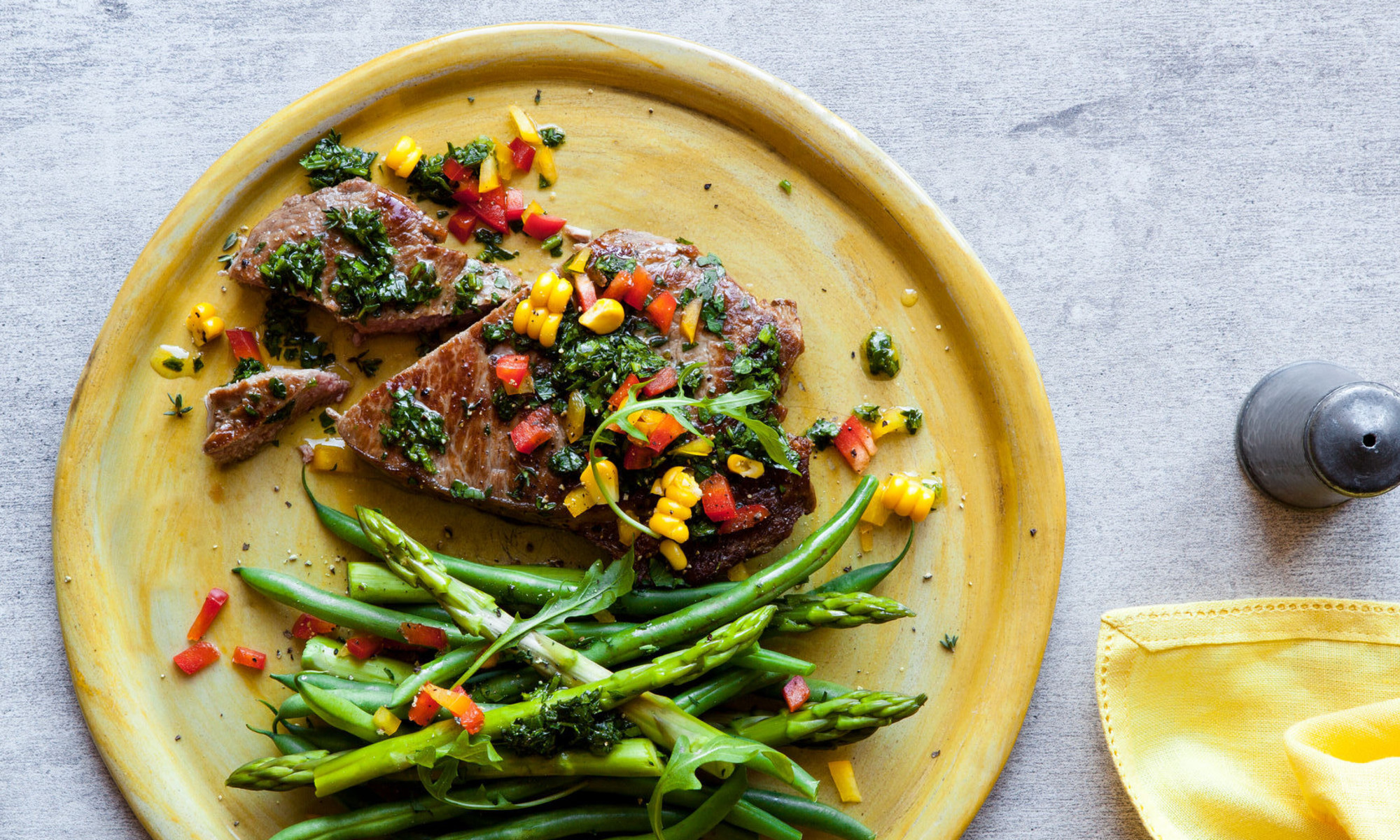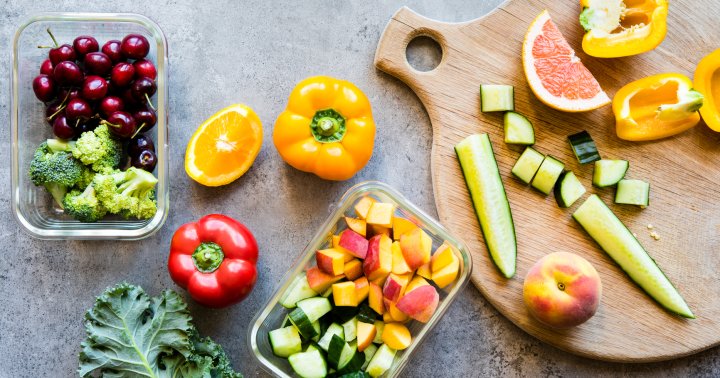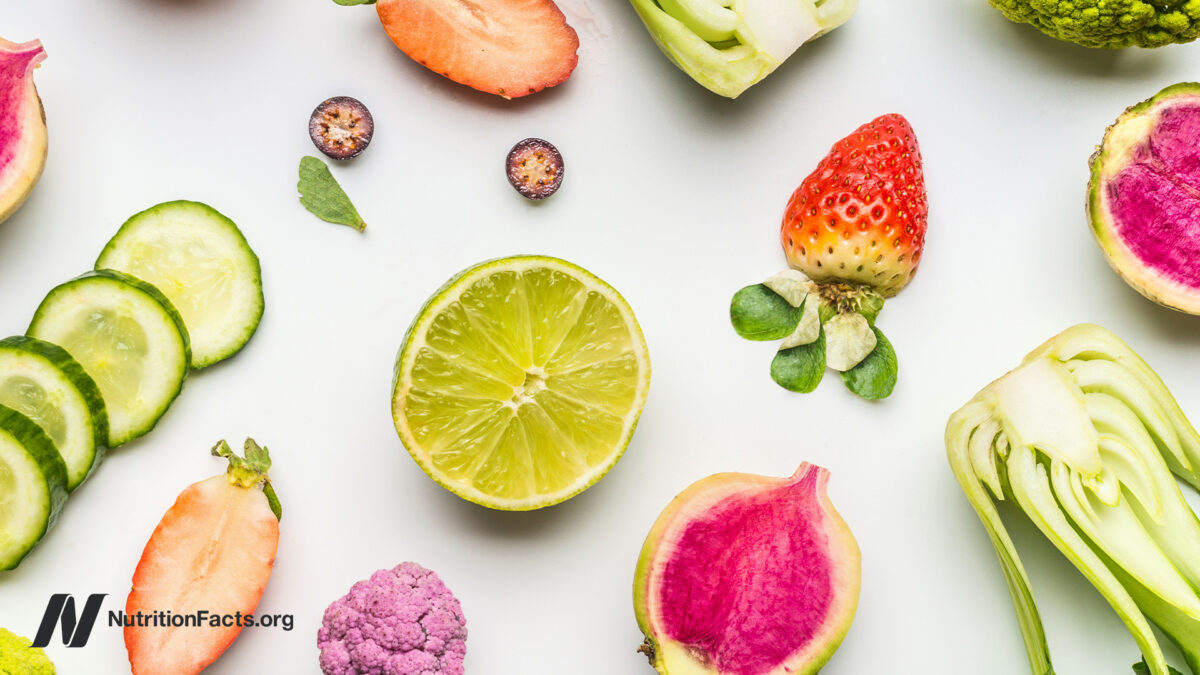How To Prepare Your Body To Eat Meat Again (If It's Been A While)
Tips to help you reintroduce meat without upsetting your body (or the planet).

Advertisement
This ad is displayed using third party content and we do not control its accessibility features.
Image by Nadine Greeff / Stocksy November 03, 2024 We carefully vet all products and services featured on mindbodygreen using our Our selections are never influenced by the commissions earned from our links. Your health and well-being are constantly evolving, so the right eating pattern for you may very well change over time. One mental and physical shift you might be ready for is adding meat back into your diet. While some opt to stay vegan or vegetarian forever, others find it challenging to obtain certain nutrients on a plant-based diet, such as vitamin B12, iron, zinc, and omega-3 fatty acids. But if it's been some time since you've added animal products to your diet, you'll want to do so mindfully. Here are some tips that will help you reintroduce meat without upsetting your body (or the planet).
Some tips to prepare yourself to eat meat again
One of the issues people have with red meat and processed meats is their high amount of saturated fat. If you have a sensitive digestive system, you may experience bloating, gas, or diarrhea when reintroducing meat into your diet. Here are some tips to help minimize discomfort:
1.
Start slowly and gradually
As a rule of thumb, start mindfully by listening to your cravings first and seeing where they take you. Pay attention to how your body reacts to different types of meat, noting any changes in digestion, energy levels, or overall well-being. Once you start tuning in, you may find that certain cuts, preparations, or pairings don't agree with you.
You may find it easier to acclimate your body to digest protein by starting with fish, then moving on to poultry, then red meat. This allows your body time to adjust and also helps alert you of any allergies or intolerances you might have.
2.
Remember: Quality counts
If possible, opt for high-quality organic, grass-fed, ethically sourced meats, which have better nutritional profiles and can be more environmentally friendly.
"When we eat meat, we are not only eating the animal, but we are also ingesting what the animal itself consumed in its diet. There are animals that eat a plant-based healthy organic diet and others that eat pesticide-laden corn, wheat, and grains all day while given high amounts of antibiotics," says registered dietitian Sarah Kassin, R.D. "Therefore, it's important to make health choices regarding the type of meat we eat so we can get the maximum benefit and the minimum harm."
She notes that grass-fed beef is also higher in key nutrients like omega-31 and conjugated linoleic acid2 (CLA), which can both help protect against disease. "Organic grass-fed meat also has higher levels of vitamins such as vitamin E and beta-carotene," adds Kassin. When consumed as part of a healthy, balanced diet3, meat is an incredible source of antioxidants like glutathione, as well as high-quality protein.
3.
Take probiotics to help your gut through the transition
Meat requires quite a bit of stomach acid and digestive enzymes for proper breakdown. As such, you might feel heavy and lethargic after eating it—especially if it's been a while.
Enter probiotics. Probiotic supplements help keep your microbiome diverse and balanced, ensuring your gut health remains in tiptop shape4 as you introduce or reintroduce meat to your diet.
4.
Pay attention to portions
Just because you're eating meat again doesn't mean it needs to be the main event of every meal. Round it out with plants and grains to balance out your plate and keep your dietary emissions in check.
The takeaway
The decision to reintroduce meat into your diet may not be a one-and-done deal. The process takes time and may require experimenting in the kitchen with different seasonings and marinades, learning when to use a supplement to help make the transition smoother, and trying out meat from different producers before deciding on the sustainable, nutritious option that makes your body feel good.

 AbJimroe
AbJimroe 

































